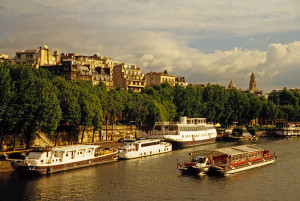Jet lag, contaminated water, insect bites, infection, and injury away from home…the potential perils are enough to make some would-be travelers toss away those glossy brochures.
But knowledge, planning, and preventatives can help stave off many of travel’s unhealthy side effects — whether it’s flying fatigue, a nasty case of Togo two-step, or an emergency medical bill after you flip your whitewater raft in Nepal.
To test your knowledge of travel health issues, take our quiz.
1. The direction in which you fly may influence the severity of your jet lag. Other conditions being equal, which direction is most likely to produce bad jet lag?
a. East to west.
b. West to east.
c. North to south
d. South to north
2. One good way to counter the effects of jet lag is to:
a. Keep your watch set on “home time.”
b. Take a nap as soon as you arrive at your destination .
c. Have a few alcoholic drinks, to help you relax and sleep on the plane.
d. None of the above.
3. If your insurance company covers doctor bills and hospital stays overseas, buying a supplementary insurance policy for travelers is a waste of money.
a. True
b. False
4. When possible, boiling drinking water is considered the safest way to avoid getting traveler’s diarrhea from contaminated water. Another reasonably reliable method is:
a. Treating the water with iodine.
b. Freezing the water to make ice.
c. Drinking bottled water.
d. All of the above.
5. When flying, the best seats to request to avoid motion sickness are:
a. Toward the rear of the plane.
b. Above the wings.
c. Toward the front of the plane.
d. No seats are better than any others.
6. One way to ward off insect bites (which can lead to malaria and other diseases) is to:
a. Use scented hair sprays, deodorants and soaps, which repel insects.
b. Wear pale clothing.
c. Swim only in fresh water pools or lagoons.
d. None of the above.
7. During the recent Ebola outbreak in West Africa, a number of would-be travelers canceled their safaris to other African countries like Kenya, Zimbabwe, and South Africa. Which city or cities in Europe and South America are closer to the affected countries of Guinea, Sierra Leone and Liberia than Nairobi, Kenya; Harare, Zimbabwe; or Johannesburg, South Africa?
a. London, England.
b. Paris, France.
c. Rio de Janeiro, Brazil
d. None of the above.
e. All of the above.
8. Which of the following vaccinations should every traveler make sure is up to date before going abroad?
a. Tetanus/diphtheria
b. Cholera
c. Hepatitis C
d. All of the above
9. If you are an American citizen and get sick in a foreign country, you can contact the U.S. embassy or consulate there for help with:
a. Alerting your family and friends back home to your condition.
b. Locating an English-speaking doctor or an appropriate medical facility
c. Getting emergency funds transferred from the U.S.
d. All of the above.
10. Dialing 911 for an emergency (police, ambulance, fire, etc.) is standard throughout the world.
a. True.
b. False.
If you can answer these ten questions correctly, you’ll have a good head start to a healthy, happy trip abroad. I’ll have the answers in my next post.
Readers: You can subscribe to my blog and get notification of every post by simply typing in your email address and clicking on the blue Subscribe button or downloading my free report, How to Ride the Coming Wave of Boomers. Thanks!













Leave a Reply